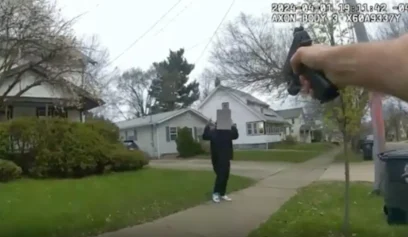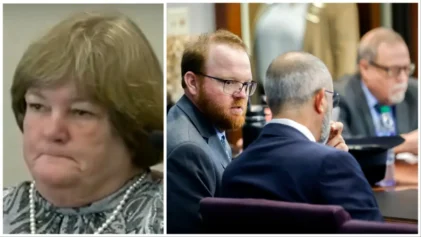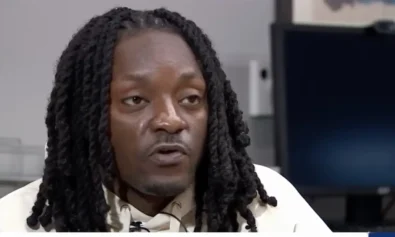The state of Alabama executed a man this week after his petition to stay the execution was denied, fulfilling the punishment he received when sentenced for the murder of his girlfriend in 1994. Despite spending almost 30 years on death row, and a large community asking to spare his life, none of the justices on the Yellowhammer State’s Supreme Court dissented.
On Thursday, July 28, 50-year-old Joe Nathan James was executed by lethal injection, after killing his then-girlfriend Faith Hall when he was 21 years old.
The order from the Supreme Court said, “The application for stay of execution of sentence of death presented to Justice Thomas and by him referred to the Court is denied,” despite the victim’s children advocating Gov. Kay Ivey for James’ life to be spared. The execution was scheduled for 7 p.m., and the decision was issued around 6:20 p.m. The procedure was carried out beginning at 9 p.m., and James was declared dead at 9:27. He offered no last words.
Justices unanimously opined, “[The] Plaintiff has not carried his burden of persuasion for an injunction to issue on a stay of execution. Accordingly, Plaintiff’s motion for a preliminary injunction is DENIED.”
The court submitted the emergency applications, Courthouse News reports, to Justice Clarence Thomas, providing no additional explanation for its ruling, other than James did not change their mind.
The Hill reports the 50-year-old said he was under duress emotionally when Hall broke up with him. The 1996 trial determined that James stalked her, after the dissolution of the short relationship, and eventually killed her at her apartment on Aug. 15, 1994, by shooting her three times.
James was convicted and sentenced to death two years after her untimely demise, but his family had hoped the court would show mercy and suspend the execution, according to Raw Story.
On Wednesday, July 27, James submitted a petition to the High Court, to stay his execution “pursuant to the wishes of the surviving members of the family of the victim.”
In the appeal, James, acting as his own attorney, wrote, “The victims and their families are paramount in our justice system and deserve to be heard on the matter of the ultimate punishment of offenders.”
Hall, who was 26 at the time of her murder, was the mother of two young girls. Despite being only 6 and 3 when she passed, both now-women desired to spare their mother’s murderer’s life.
Before the execution, Hall’s oldest daughter, Terryln said, “I don’t want it to go forward,” adding, “We’re not God.”
She continued, “I just feel like we can’t play God. We can’t take a life. We thought about it and prayed about it, and we found it in ourselves to forgive him for what he did. We really wish there was something that we could do to stop it.”
The younger daughter Toni Hall, also invoked their religious overtones in her comments, saying, “An eye for an eye has never been a good outlook for life.”
Hall’s brother also spoke out against the execution with his nieces addressing the governor.
Ivey would not be budged saying, “My staff and I have researched all the records and all the facts and there’s no reason to change the procedure or modify the outcome. The execution will go forward,” making the declaration before the High Court made a public decision.
As a practicing Muslim, James challenged the execution by invoking the Alabama Religious Freedom Act and the Religious Land Use and Institutionalized Person Act. In his appeal, he argued that in all of the holy books of the Abrahamic faiths, forgiveness is at the root of their belief model, and to take someone’s life would be inconsistent with the teachings of their prophets.
He wrote the Koran and the Bible would be violated if he was executed, and to go forward would violate his First Amendment rights as a Muslim and the First Amendment rights of the victims.
Aside from the religious and doctrinal opposition to the death penalty, there were flaws in the actual trial. James begged the justices to allow him to pursue a new challenge to his case, that he believed to justify freeing him.
Decades ago, during the initial trial, his lawyers argued the prosecution botched the trial, using evidence that should not have been allowed.
After being convicted of capital murder in 1996, but that was overturned by a state appeals court. The court believed the judge in his original trial wrongly admitted some reports from the police that should not have been allowed as evidence. The state retried and resentenced in 1999, upholding the death penalty.
A final request, James asked if he could die by nitrogen hypoxia gas instead of lethal injection. This too was denied. The prosecution argued James was supposed to make that decision in 2018 but missed the deadline.
The State wrote, “Plaintiff did not make an election within that time frame. Though he may have still been pursuing post-conviction appeals, it does not change the fact that his election was due within that time period. Therefore, his claims are time-barred.”
He believed he didn’t have enough opportunity to submit the method he wanted his life to end.


